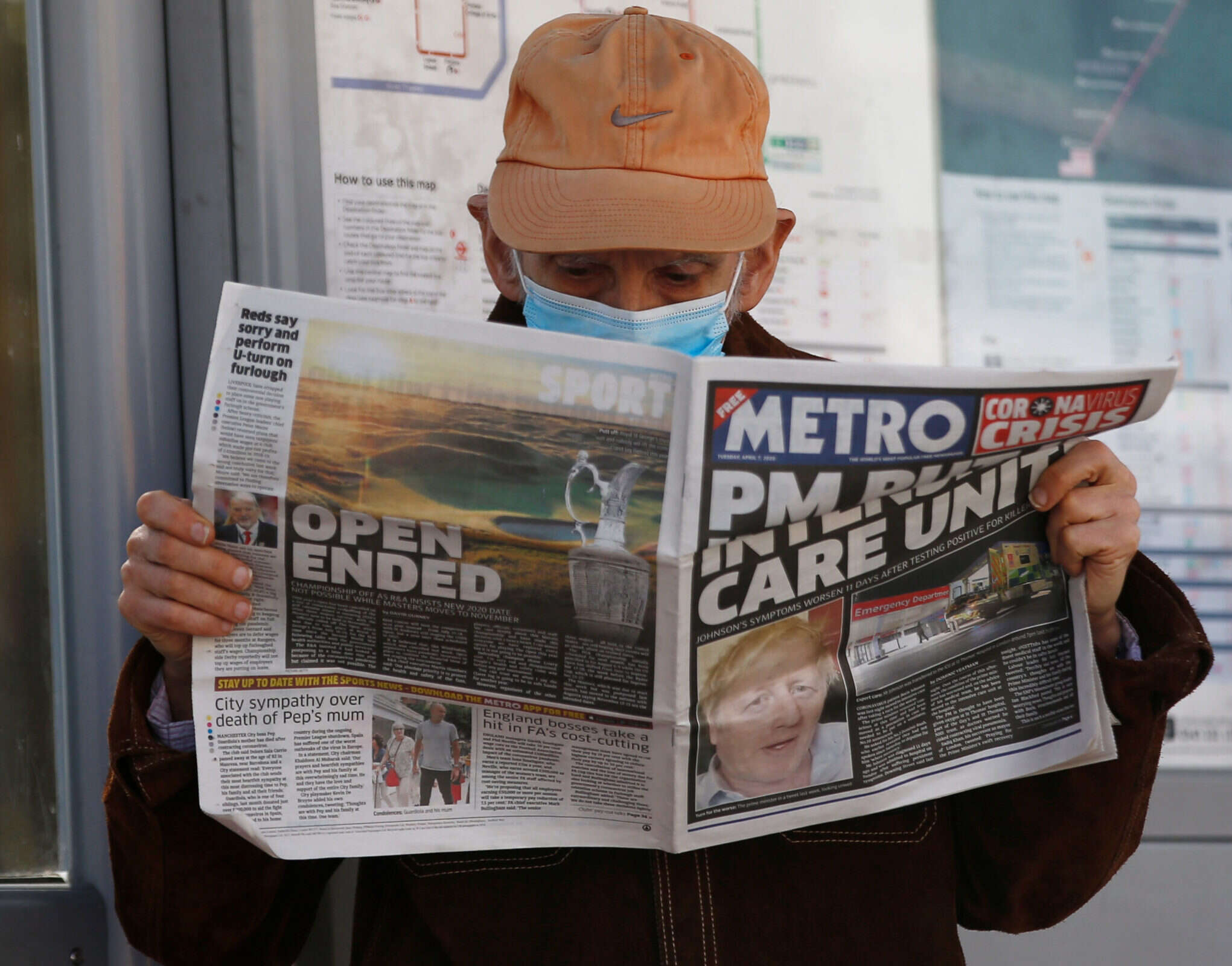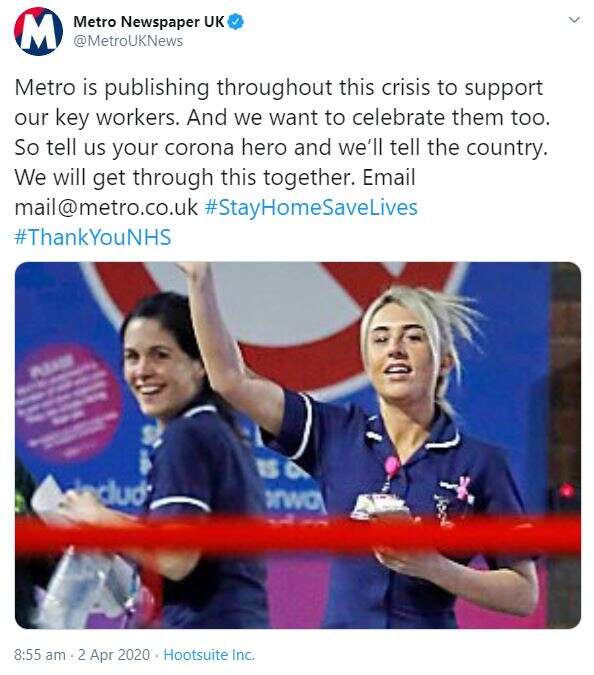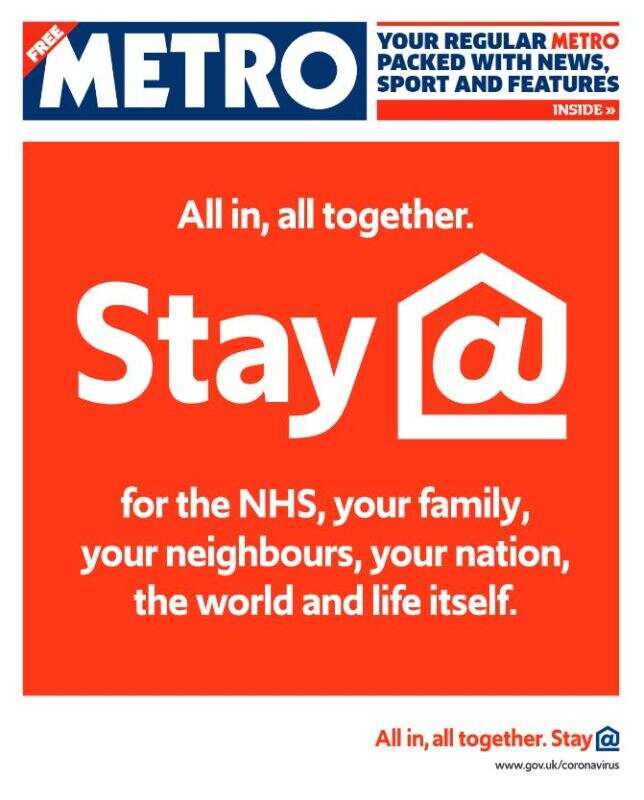
Metro, the UK’s most-read newspaper, is continuing to print throughout the coronavirus lockdown despite losing the majority of its readers: commuters who are staying at home.
The paper is targeting key workers who still have to travel to work, providing them with a service despite now operating at a loss as the news industry is hit by a significant drop in advertising.
As a free newspaper, Metro is dependent on advertisers for revenue.
Normally just over 1.4m copies of the Metro would be distributed on weekdays for pick-up at stations across the UK – the most of any national newspaper – with 60 per cent distributed in London.
Press Gazette understands it is currently putting out just under 500,000 copies a day – a fall of nearly two-thirds – of which about half are in London and the other half in the nations and regions.
The ongoing production of the print product at a loss is seen as a commitment by Metro owner DMGT during a difficult time for the nation.

A spokesperson for DMG Media, DMGT’s consumer media arm, said: “We are continuing to partner with the printers, retailers and distributors to continue providing essential and informed advice around coronavirus.
“While we have adjusted our distribution numbers to reflect the impact of the lockdown, Metro’s circulation is resilient and is a significant achievement in such challenging circumstances.
“The paper still has an important role to play, not only in commuters’ lives, but the lives of key workers who are using the transport network. We will continue to support them.”
The Metro’s pagination has fallen under lockdown measures introduced since 23 March. Normally it would carry anything from 40 to 80 pages, but it has been running consistently to 32 or 36 pages in recent weeks.
The digital page-turning edition of the Metro is also available online for free and it continues to report daily at metro.co.uk.
DMGT also owns the Mail and i titles. The group made pre-tax profit of £145m on turnover of £1.4bn in 2019. DMG Media accounted for £672m of group revenue, of which the Metro made £79m.
So far, no employees of DMGT have been furloughed. Instead staff have been offered shares in the company to compensate them for taking a pay cut during the coronavirus crisis.
The UK’s two other free national daily newspapers, City AM and the Evening Standard, have had to take drastic action to shore up their businesses during the pandemic.
City AM has suspended its print and digital editions and furloughed about 40 staff, including some journalists.
The Evening Standard is delivering to homes for the first time, cutting its circulation down to half a million copies a day and suspending the weekly ES Magazine. The title has also furloughed some staff and cut wages.
The Metro joined other national newspapers in running a wrap advert, paid for by the Government, telling people to “Stay at home” last week. The Government is spending millions with the media in disseminating its Covid-19 public information campaign.

Picture: Reuters/Henry Nicholls
Email pged@pressgazette.co.uk to point out mistakes, provide story tips or send in a letter for publication on our "Letters Page" blog
